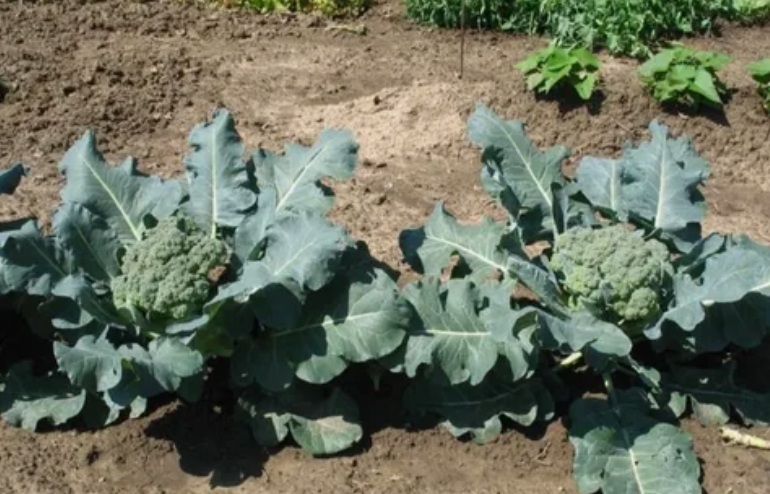The Humble Onion: A Culinary Staple with Remarkable Benefits
The onion, scientifically known as Allium cepa, is a ubiquitous vegetable found in kitchens across the globe. Its pungent aroma and distinct flavor have made it an essential ingredient in countless cuisines for centuries. Beyond its culinary versatility, the onion boasts a rich history of medicinal use and offers numerous health benefits. This article delves into the origins, uses, and remarkable properties of this humble yet powerful bulb.
Origins and Cultivation:
The onion is believed to have originated in Central Asia, with evidence suggesting cultivation dating back over 5,000 years. From its ancient beginnings, it spread throughout the world, becoming a staple crop in various regions. Today, onions are cultivated commercially in temperate climates worldwide. They thrive in well-drained soil and require full sunlight.
Culinary Versatility:
Onions are renowned for their versatility in the kitchen. Their sharp, pungent flavor adds depth and complexity to countless dishes. They can be consumed raw, adding a crisp bite to salads and sandwiches. Cooked onions lend sweetness and richness to soups, stews, sauces, and roasted meats. Caramelized onions, with their deep brown hue and mellow sweetness, are a culinary delight, elevating everything from pizzas to burgers.
Nutritional Powerhouse:
Beyond its flavor, the onion is a nutritional powerhouse, packed with vitamins, minerals, and antioxidants. It is an excellent source of vitamin C, a potent antioxidant that supports immune function. Onions also contain quercetin, a flavonoid linked to anti-inflammatory and anti-cancer properties. Furthermore, they are rich in prebiotics, which promote gut health by nourishing beneficial bacteria.
Medicinal Uses:
Throughout history, onions have been revered for their medicinal properties. Ancient civilizations used them to treat various ailments, including coughs, colds, and skin infections. Studies suggest that onion consumption may help lower blood pressure, improve cholesterol levels, and reduce the risk of certain cancers. Additionally, its anti-inflammatory properties may be beneficial for individuals suffering from arthritis and other inflammatory conditions.
Health Cures:
While onions are not a cure-all, their medicinal properties can contribute to overall well-being. Some traditional uses with supporting evidence include:
-
Respiratory ailments: Onions contain compounds that can help thin mucus and relieve congestion associated with colds and coughs.
-
Wound healing: The antimicrobial properties of onion juice have been traditionally used to promote wound healing.
-
Blood sugar control: Studies suggest that onion consumption may help regulate blood sugar levels in individuals with diabetes.
Important Considerations:
While generally safe for consumption, onions can cause gastrointestinal discomfort in some individuals, especially when consumed raw. Those with allergies to onions or related plants should avoid them. It is important to consult a healthcare professional before using onions for medicinal purposes, especially if you have pre-existing medical conditions or are taking medication.

The Humble Onion: A Culinary Powerhouse and Health Booster
The onion, a humble bulb often relegated to the background, is, in reality, a culinary powerhouse and a surprisingly potent health booster. From the simplest of dishes to the most complex culinary creations, the onion lends its unique flavor and aroma, transforming ordinary ingredients into extraordinary experiences. Beyond its culinary prowess, this ubiquitous vegetable boasts a wealth of health benefits, making it a true staple for a well-rounded diet. This article delves into the practical dishes that benefit from the onion’s presence, explores its diverse culinary applications, and uncovers the health advantages it offers, particularly as a natural remedy for colds and flu.
A Culinary Chameleon: The Versatility of Onions in the Kitchen
The onion’s versatility stems from its ability to transform its flavor profile depending on how it’s prepared. Raw onions offer a sharp, pungent bite, while cooked onions mellow and sweeten, releasing their complex sugars and aromas. This adaptability makes them a fundamental ingredient in cuisines around the world. Here are just a few examples of the dishes that benefit greatly from the onion’s presence:
Soups and Stews: Onions form the aromatic base of countless soups and stews. Sautéing them with other aromatics like garlic and celery creates a “mirepoix” (French) or “soffritto” (Italian), the foundation for richer and more flavorful broths. Think classic French onion soup, hearty vegetable stews, and creamy potato soups – all relying on the onion’s depth of flavor.
Sauces and Salsas: From the simple marinara sauce to complex curries, onions play a critical role in building flavor. They add sweetness, body, and a subtle sharpness that balances other ingredients. Consider the essential role of onions in Mexican salsas, Indian chutneys, and various Asian stir-fry sauces.
Stir-fries: Whether it’s a quick weekday stir-fry or a more elaborate Asian delicacy, onions contribute texture, flavor, and aroma. Their ability to caramelize quickly adds a touch of sweetness and complexity to the dish.
Casseroles and Baked Dishes: Onions add moisture and flavor to casseroles, baked pasta dishes, and gratins. Their subtle sweetness complements cheeses, vegetables, and meats, creating a harmonious blend of flavors.
Meat and Poultry Dishes: Onions are often used as a marinade for meat, tenderizing the fibers and infusing them with flavor. They can also be stuffed into poultry or roasted alongside meats, adding moisture and depth to the dish.
Egg Dishes: From omelets and frittatas to quiches and scrambles, onions add a savory element to egg dishes. Their sweetness complements the richness of the eggs, creating a balanced and satisfying meal.
Side Dishes: Caramelized onions are a delightful side dish on their own, or they can be incorporated into mashed potatoes, risotto, or roasted vegetables, elevating them to a new level of deliciousness. Onion rings, a classic fried treat, demonstrate the vegetable’s ability to shine as a standalone dish.
Beyond the Basics: Exploring Different Onion Varieties and Their Uses
The onion family encompasses a wide variety of shapes, sizes, and flavors, each suited for different culinary applications.
Yellow Onions: The most common type, yellow onions are versatile and suitable for most cooking purposes. Their flavor becomes sweeter and milder when cooked.
White Onions: These onions have a sharper, more pungent flavor than yellow onions, making them ideal for salsas and other dishes where a strong onion flavor is desired.
Red Onions: Known for their beautiful color and mild flavor, red onions are often used raw in salads, sandwiches, and as a garnish. Their sweetness also makes them suitable for grilling and pickling.
Sweet Onions: Varieties like Vidalia and Walla Walla onions are known for their high sugar content and mild, sweet flavor. They are delicious raw or grilled.
Shallots: These small, elongated onions have a delicate, garlicky flavor. They are often used in sauces, vinaigrettes, and fine dining cuisine.
The Onion’s Health Benefits: A Natural Remedy and Nutritional Powerhouse
Beyond its culinary contributions, the onion offers a wide range of health benefits, making it a valuable addition to any diet.
Rich in Antioxidants: Onions are packed with antioxidants, including quercetin, which helps protect the body against damage from free radicals. These antioxidants can help reduce the risk of chronic diseases like heart disease, cancer, and Alzheimer’s disease.
Anti-inflammatory Properties: The compounds in onions have anti-inflammatory properties, which can help reduce inflammation throughout the body. This can be beneficial for people with arthritis, asthma, and other inflammatory conditions.
Boosts the Immune System: Onions contain vitamin C, which is essential for a healthy immune system. They also contain compounds that stimulate the production of white blood cells, which help fight off infections.
Supports Heart Health: Onions can help lower cholesterol and blood pressure, reducing the risk of heart disease. They also contain compounds that prevent blood clots.
Promotes Digestive Health: Onions are a good source of fiber, which is essential for healthy digestion. They also contain prebiotics, which feed the beneficial bacteria in the gut, promoting gut health.
Onion as a Cold and Flu Remedy: A Natural Approach
Their potent properties can help alleviate symptoms and support the body’s natural healing process.
Decongestant: The sulfur compounds in onions help to break up mucus and clear congestion. Inhaling the vapors from a freshly cut onion can help relieve stuffiness and open up the airways.
Cough Suppressant: Onion syrup, made by combining sliced onions with honey or sugar, is a traditional remedy for coughs. The syrup helps soothe the throat and reduce inflammation.
Antibacterial and Antiviral Properties: Onions contain compounds that have antibacterial and antiviral properties, which can help fight off infections that cause colds and flu.
Ways to Use Onions for Cold and Flu Relief:
Onion Syrup: Slice an onion and layer it with honey or sugar in a jar. Let it sit overnight. Take a spoonful of the syrup several times a day.
Onion Vapor Inhalation: Chop an onion and place it in a bowl. Lean over the bowl and inhale the vapors for several minutes.
Onion Poultice: Grind a raw onion into a paste and apply it to the chest or soles of the feet. Cover with a cloth and leave it on for a few hours.
Onion Tea: Boil sliced onions in water for 10-15 minutes.
Conclusion: Embrace the Power of the Onion
The humble onion, a seemingly simple vegetable, is a culinary treasure and a health-promoting powerhouse. Its versatility in the kitchen allows it to enhance a vast array of dishes, while its impressive health benefits make it a valuable addition to any diet. From boosting the immune system to providing relief from cold and flu symptoms, the onion offers a natural and effective way to support overall well-being. So, embrace the power of the onion, explore its culinary possibilities, and reap the rewards of its numerous health benefits. It’s a truly indispensable ingredient that deserves a place of honor in every kitchen and on every plate.
Conclusion:
The onion is more than just a culinary staple; it is a testament to the power of nature’s bounty. Its versatility in the kitchen, coupled with its remarkable nutritional and medicinal properties, makes it a valuable addition to any diet. By incorporating onions into our meals and exploring their traditional uses, we can unlock the full potential of this humble yet remarkable vegetable.
You can read below writings
what is green tea and where does it grow
Guide to Black Tea: Origins, Benefits, Uses
Nature’s Calming and Healing Wonder Linden
Exploring Hawthorn: Nature’s Healer and Its Many Benefits
Flax Seed: A Superfood for Health and Wellness
The Humble Onion: A Culinary Staple with Remarkable Benefits






